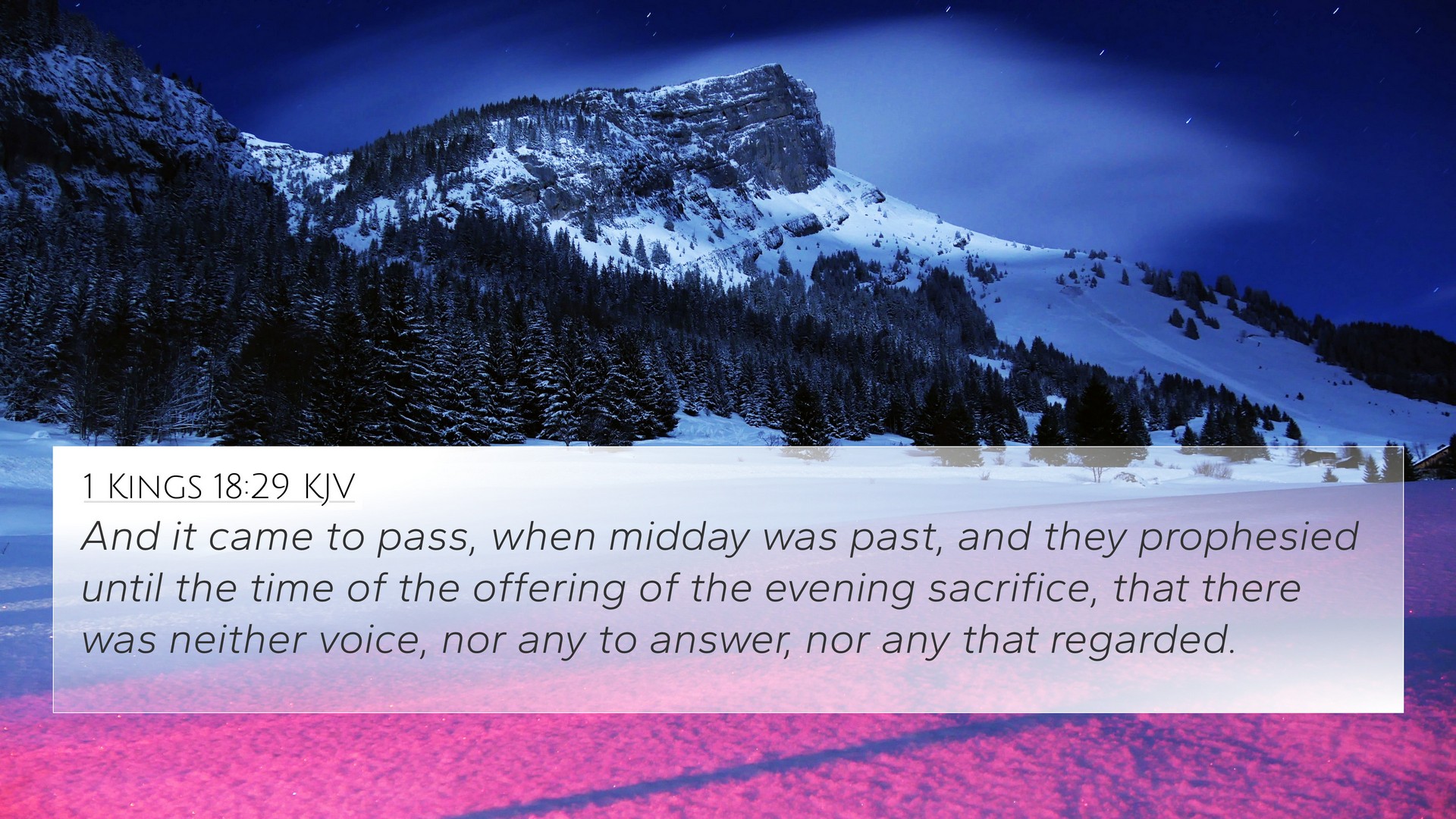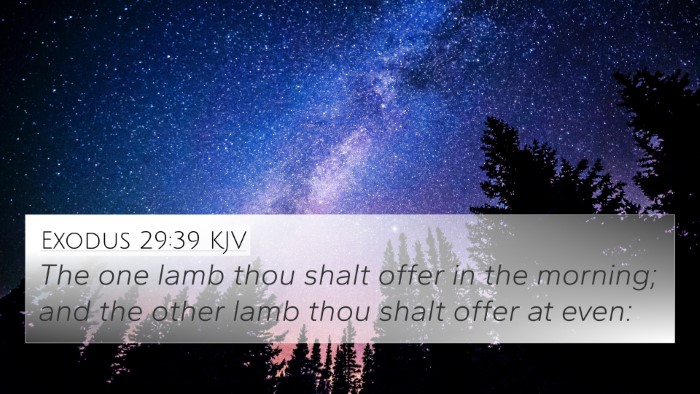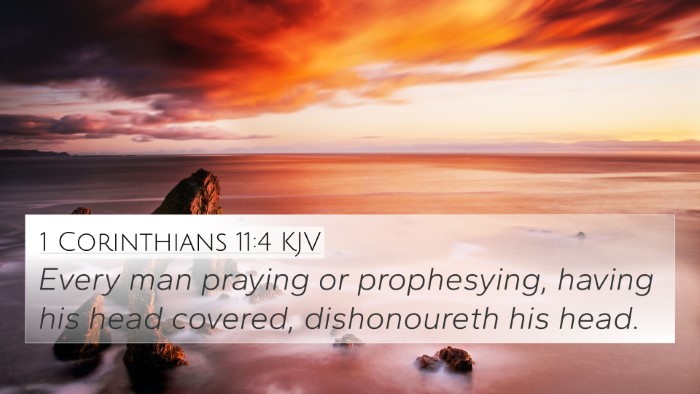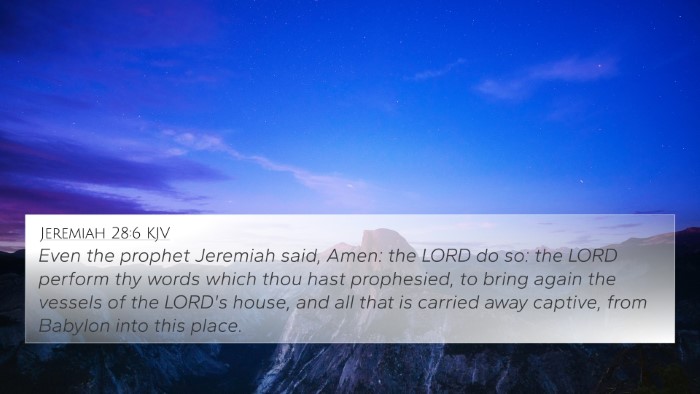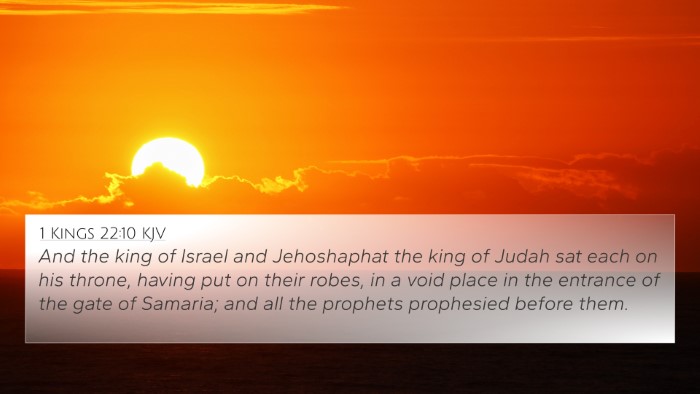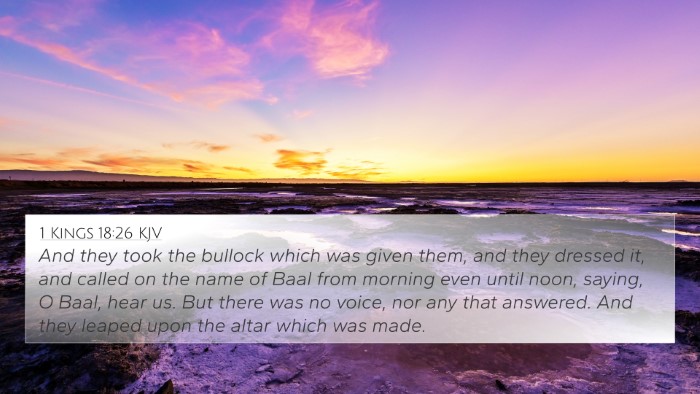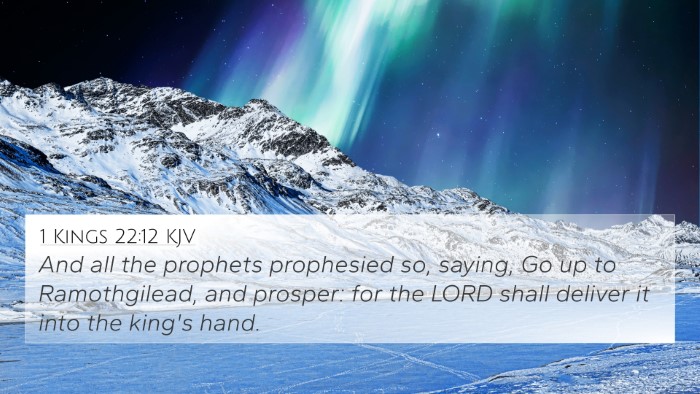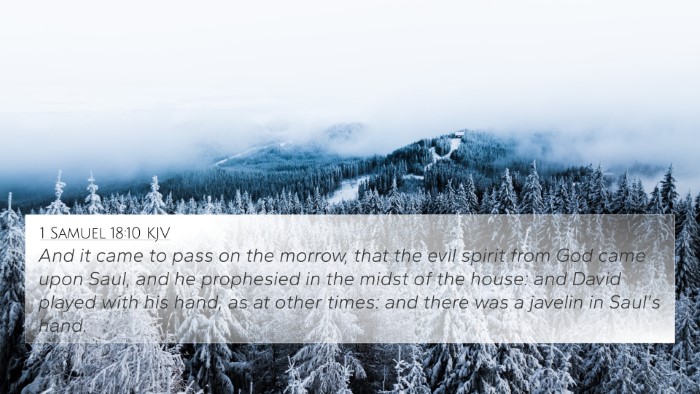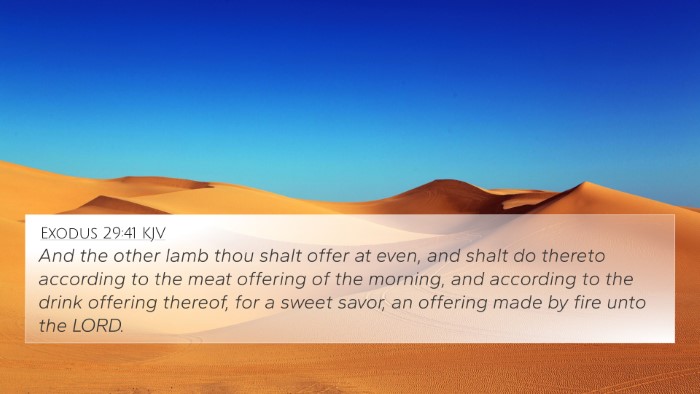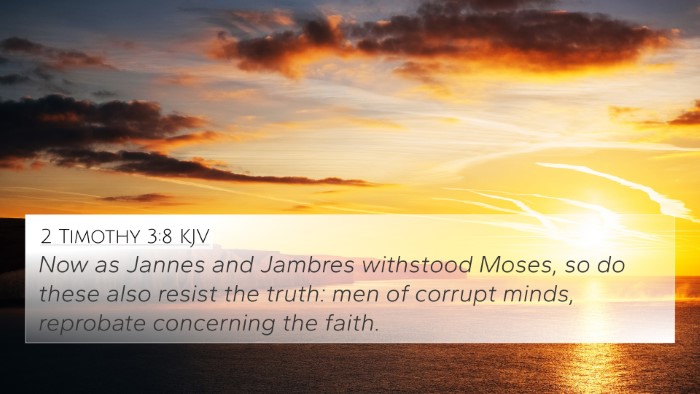Understanding 1 Kings 18:29
This verse presents a pivotal moment during Elijah's confrontation with the prophets of Baal on Mount Carmel. It captures the intensity of the moment when the prophets called upon Baal to answer them, but their cries went unanswered, highlighting the impotence of false gods.
Verse Context: 1 Kings 18:29 states: "And it came to pass, when midday was past, and they had prophesied until the time of the offering of the evening sacrifice, that there was neither voice, nor any to answer, nor any that regarded."
Key Themes and Insights
- The Futility of Idolatry: This verse emphasizes the silence of Baal, a false god, indicating that idols cannot respond to their worshippers.
- The Power of God: In contrast to the impotent plea of the prophets, the ensuing events demonstrate the unparalleled power of the true God, who answers Elijah's prayer by sending fire from heaven.
- Proof of Divine Authority: The lack of response from Baal serves to strengthen Elijah's argument for the supremacy of Yahweh.
Commentary Insights
Matthew Henry: In his commentary, Henry discusses how the prophets of Baal were desperate in their actions, yet they received no answer. This reflects the delusion of idol worship versus the truth of God's presence.
Albert Barnes: Barnes highlights that the failure of Baal to respond is a direct challenge to the credibility of idol worship. He notes how the hour of grace (the evening sacrifice) marked a critical moment in the demonstration of God's power.
Adam Clarke: Clarke emphasizes the ridicule of the prophets of Baal as they performed their rituals tirelessly. He points out that their experience serves as a lesson on the necessity of true faith in God and the futility of putting one's trust in idols.
Cross-References
1 Kings 18:29 connects to several key Bible passages:
- Psalm 115:4-7: This passage discusses the nature of idols, illustrating their lifelessness in contrast to the living God.
- Isaiah 44:9-20: Isaiah critiques the making of idols, emphasizing their helplessness and the foolishness of idol worship.
- Matthew 15:14: This verse contains Jesus' teaching against the blind leading the blind, paralleling the futility seen in the prophets' actions.
- Romans 1:21-23: Paul discusses the consequences of idolatry, where people exchange the truth of God for lies, highlighting a similar theme of rejection of divine authority.
- Jeremiah 10:14: Jeremiah speaks to those who would choose to worship carved images, reinforcing the message of this dramatic confrontation.
- Hebrews 11:6: This verse emphasizes the necessity of faith, contrasting those who blindly follow idols with those who seek God with sincerity.
- Revelation 19:20: Discussion around false prophets and their ultimate judgment resonates with the fate of the prophets of Baal.
- 1 Corinthians 8:4-6: Paul clarifies that idols are nothing in the world, affirming the truth of Elijah's demonstration of God's power.
- James 1:6: This verse calls upon believers to have unwavering faith, contrasting the desperation of the false prophets.
- Exodus 20:4-5: The commandment against idols directly relates to the themes witnessed in this confrontation at Mount Carmel.
Conclusion
Through the analysis of 1 Kings 18:29, we see the profound truth that faith must be placed in the living God rather than in idols that cannot respond. The verse challenges readers to consider where they place their trust and to recognize the power of God amid a world filled with distractions and false assurances.
Further Study Suggestions
For those interested in delving deeper into the themes presented in 1 Kings 18 and how they interact with the broader biblical narrative, consider exploring:
- How to find cross-references in the Bible using tools like Bible concordances and cross-reference guides.
- Detailed cross-reference studies between the Old and New Testaments, focusing on the fulfillment of prophecies regarding idolatry.
- Links between the prophetic messages in the Old Testament and the teachings of Jesus and the apostles regarding faith and belief.
